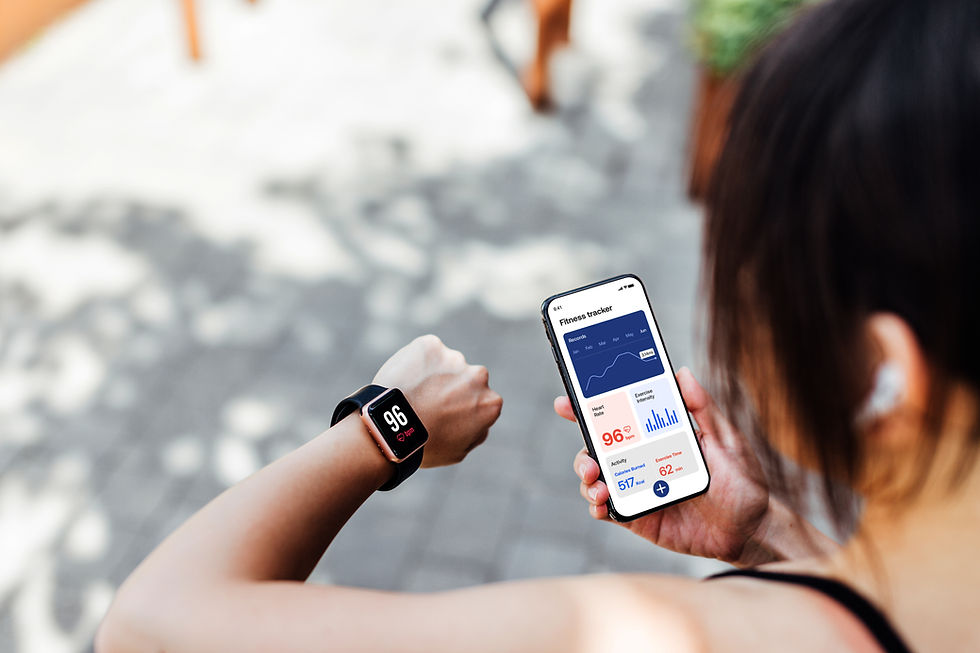How Wearable Fitness Devices Can Help Manage Diabetes
- alleywayy
- Oct 13, 2023
- 2 min read

Wearable Fitness Devices
Diabetes is a chronic disease that affects millions of people worldwide. It can be challenging to manage, but with the right tools and resources, living with diabetes can be a lot easier. One such tool is wearable fitness devices, which can help people with diabetes manage their condition and track their health goals. Today, we will explore how wearable fitness devices can help those with diabetes.
Tracking Activity Levels
Wearable fitness devices are designed to track your daily activity levels, including your steps, calories burned and heartbeats, making them an effective tool in managing diabetes. By tracking your physical activity, you can set realistic health goals and monitor your progress over time. Wearing a fitness tracker can help you stay motivated and accountable, making it easier to manage your diabetes.
Monitoring Blood Sugar Levels
For people with diabetes, regular monitoring of blood sugar levels is essential. Wearable fitness devices can help monitor these levels, which is critical in controlling blood sugar levels and avoiding complications. Some fitness trackers come with glucose monitoring sensors that track blood sugar levels in real-time; others require you to enter the data manually. Regardless of the method, wearing a fitness tracker can help you stay on top of your diabetes.
Reminding You to be Active
Sedentary behavior is a significant risk factor in diabetes management, which makes physical activity essential. With wearable fitness devices, you can set reminders to move, which prompts you to get up and be more active. Over time, this can lead to better blood sugar management, weight loss, and lower blood pressure, leading to better diabetes management overall.
Monitoring Sleep Patterns
Sleep is crucial in managing diabetes, but it can be challenging to get enough quality sleep. Wearable fitness devices can also track your sleep patterns, including the duration and quality of sleep that you get each night. This data can help you make changes to your sleeping habits, such as going to bed earlier or sleeping for longer, which can improve diabetes management over time.
Tracking Nutritional Intake
Proper nutrition is essential in diabetes management, but it can be difficult to track your food intake accurately. Wearable fitness devices can help by providing a log of your daily food intake. Some devices have a barcode scanner feature to scan the barcode on the food package, providing nutritional information automatically. This is helpful in monitoring your carb intake, which helps manage your blood sugar.
Managing diabetes requires discipline and effort, but with the right tools and resources, diabetes management can be a lot easier. Wearable fitness devices are a great tool in managing diabetes, and they can help in tracking physical activity levels, monitoring blood sugar levels, reminding you to be active, and monitoring sleep patterns and nutritional intake. With the advancement of technology, it's becoming easier and more affordable to use these wearable fitness devices, making it much easier for people with diabetes to manage their condition.
Comments